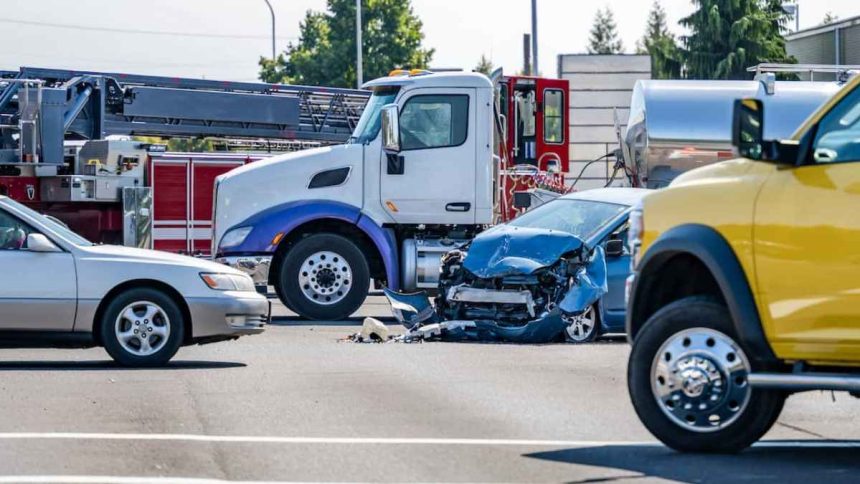Truck accidents can lead to catastrophic damage and several injuries that may require you to stay in the hospital for weeks or even months. Truck accidents happen for a number of reasons, including driver distraction, recklessness, inexperience, etc. Sometimes the trucking company is also to blame when they fail to ensure the proper functioning of equipment and adequate driver training.
If you have been injured in a truck accident, you can claim monetary compensation through their motor insurance policy. Trucking companies carry insurance policies for personal injury claims, and your attorney can see to it that you receive the amount you deserve. Get in touch with a lawyer today and explore your legal options.
Common truck accident defenses your attorney can help you fight
1. The blame is put on the plaintiff.
One of the most common defenses in a truck accident is pointing the finger at the plaintiff. The defendant may try to put the entire blame on you or say that you were partially at fault. Comparative negligence laws allow the plaintiff to recover compensation still, but the amount is usually less than what they would have received if they were completely innocent. The trucking company will likely look for evidence to blame you, at least partially.
2. They question the evidence.
Another tactic used by trucking companies is claiming that the evidence presented by the plaintiff does not prove liability. The trucking or insurance company wants to avoid paying and will try as long as possible to dispute any evidence you show in court. This is why hiring an attorney and gathering strong legal evidence is important. An attorney knows what kind of evidence is disputable and what is not and can save you time and money.
3. The accident was no one’s fault.
When the defendant is unable to point their fingers at you, they may attempt to prove that the accident was no one’s fault and that it was unavoidable. They may also say that the accident was an honest mistake to show that there was no negligence on their part. However, your attorney can help expose their errors in court.
4. The plaintiff is exaggerating.
The law only allows the plaintiff to seek damages when there have been considerable losses and damages. If the other party successfully proves that the plaintiff is exaggerating and lying about their injuries, then they will not have to pay damages. They may argue that the plaintiff overestimated the damages or did not suffer any actual damages.
Lynn Martelli is an editor at Readability. She received her MFA in Creative Writing from Antioch University and has worked as an editor for over 10 years. Lynn has edited a wide variety of books, including fiction, non-fiction, memoirs, and more. In her free time, Lynn enjoys reading, writing, and spending time with her family and friends.















